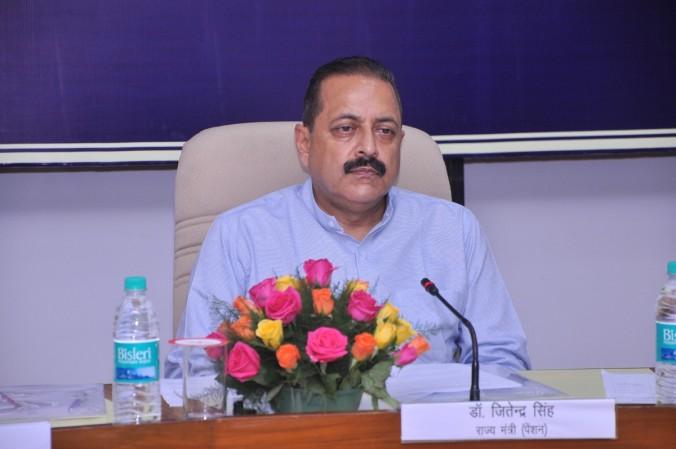Union Minister Dr Jitendra Singh on Sunday said that Jammu and Kashmir will soon become the first Union Territory (UT) in the country to have a district level Good Governance Index.
The Minister said this hereafter receiving an update from the newly appointed Secretary of Department of Administrative Reforms and Public Grievances (DARPG), Union Ministry of Personnel, V. Srinivas.
Dr Singh said, "The Centre will set up the District Good Governance Index (DGGI) in J&K and the DARPG will carry out this task in collaboration with the UT government. The framework of the proposed Index has been finalised with the technical support from the Centre for Good Governance (CGG) Hyderabad."

The Minister pointed out that Prime Minister Narendra Modi is keen that we should replicate in J&K, the same best practices of governance which are followed in other States and UTs of the the country. "For a long time, as a result of certain constitutional and administrative constraints, many of the Central Rules of DoPT and ARPG were not applicable in Jammu & Kashmir, but in the last over two years, there has been a fast-track attempt to change the work culture and to follow the Mantra of 'Maximum Governance, Minimum Government', which has been the guiding principle of the Centre and States ever since the Modi government came in 2014," he said.
Dr Singh mentioned that 'Good Governance Index' at the district level will enable each of the 20 districts of J&K to rise to the level of some of the best-administered districts of the country, with time bound disposal of office files and other matters, increased transparency, increased accountability and increased citizen participation. "The next step would be to carry forward these Good Governance practices down to tehsil and block level," the minister said.

The DGGI Framework has 58 Indicators drawn from different aspects of development and district administration distributed in all-encompassing 10 sectors such as agriculture and allied sector, Commerce and Industry, Human Resource Development, Public Health, Public Infrastructure & Utilities, Economic Governance, Welfare & Development, Public Safety and Judiciary and Citizen Centric Governance.
These indicators were finalised after a series of consultations with the district officials of the government of J&K, academia, subject specialists, etc. Looking at the availability of authentic published data and other key principles, the set of indicators have been finalised from a larger list of 135 to 58.








!['Lip lock, pressure, pyaar': Vidya Balan- Pratik Gandhi shine in non-judgmental infidelity romcom Do Aur Do Pyaar [ Review]](https://data1.ibtimes.co.in/en/full/797104/lip-lock-pressure-pyaar-vidya-balan-pratik-gandhi-shine-non-judgmental-infidelity-romcom.jpg?w=220&h=138)








